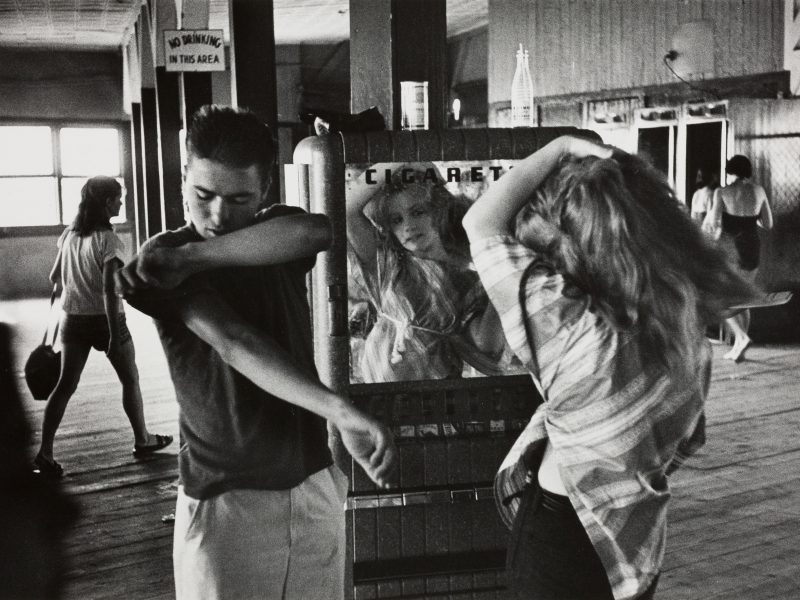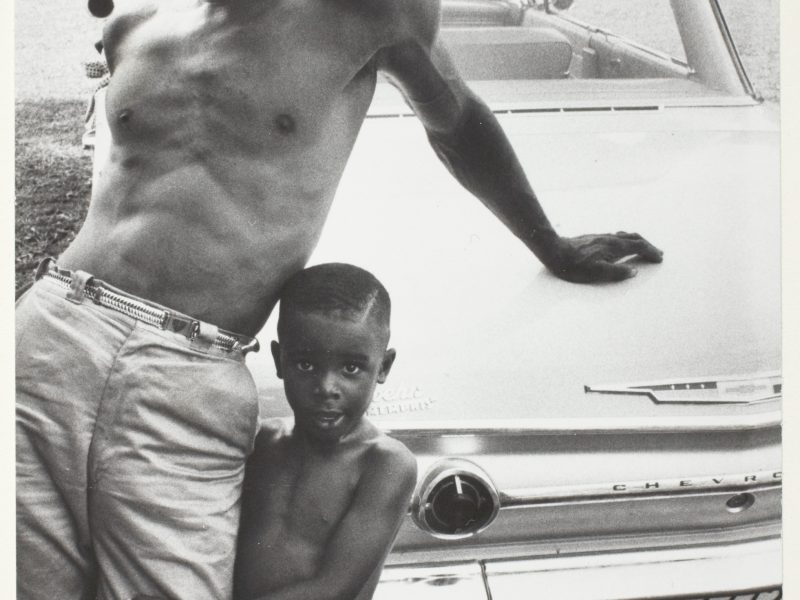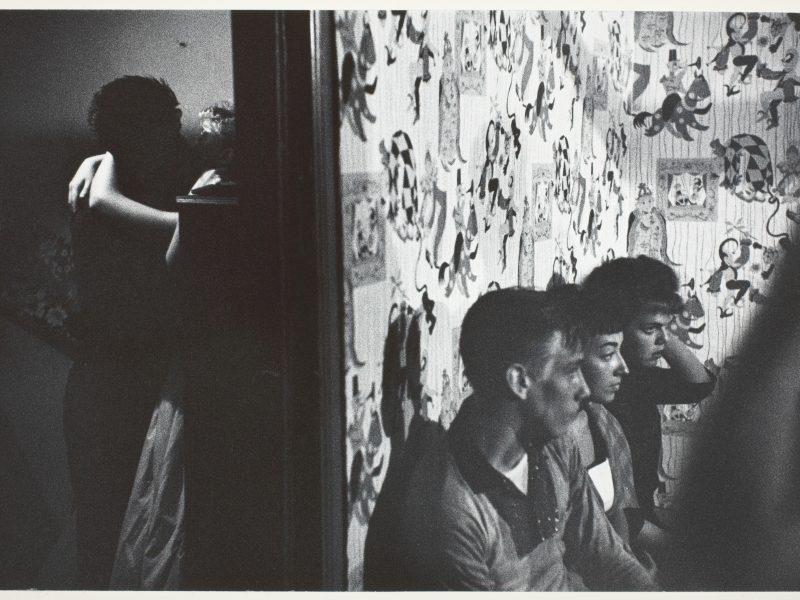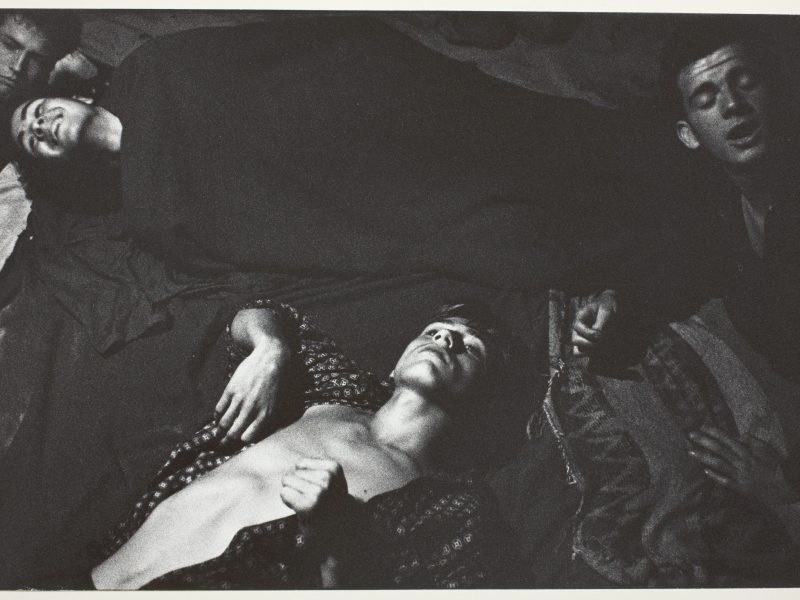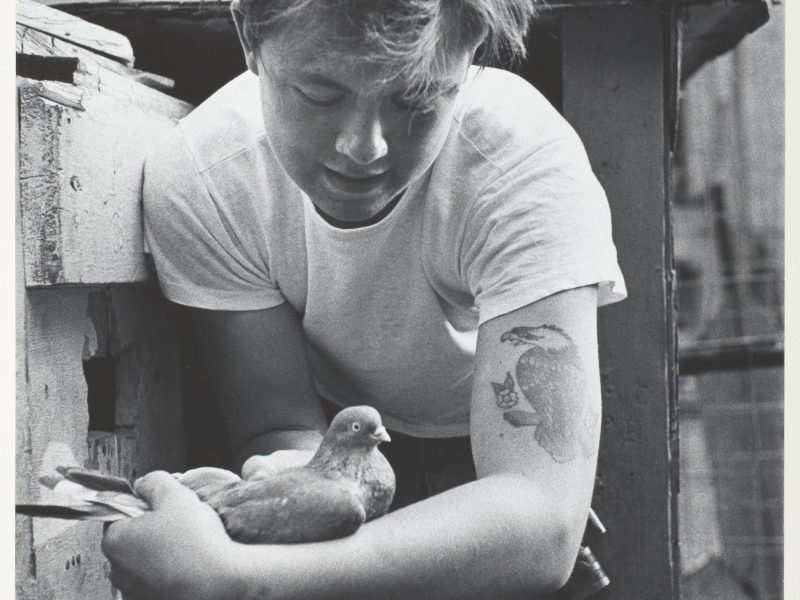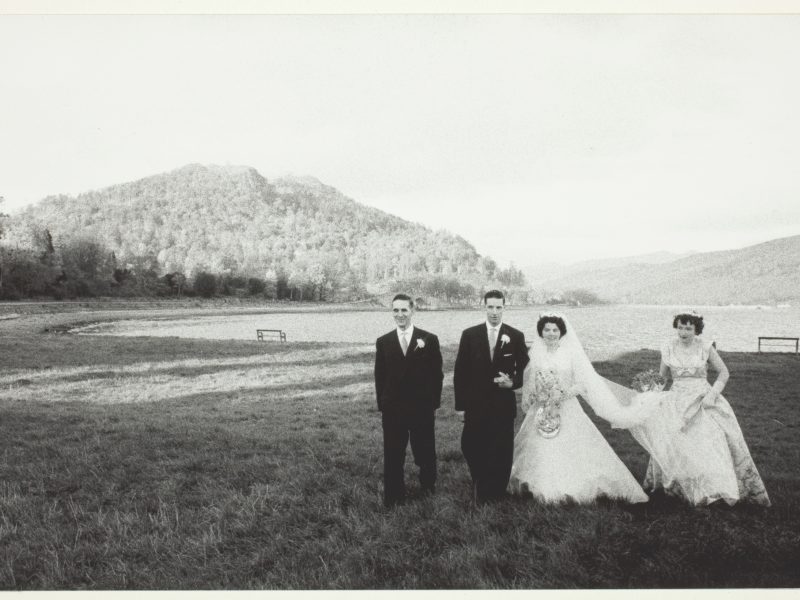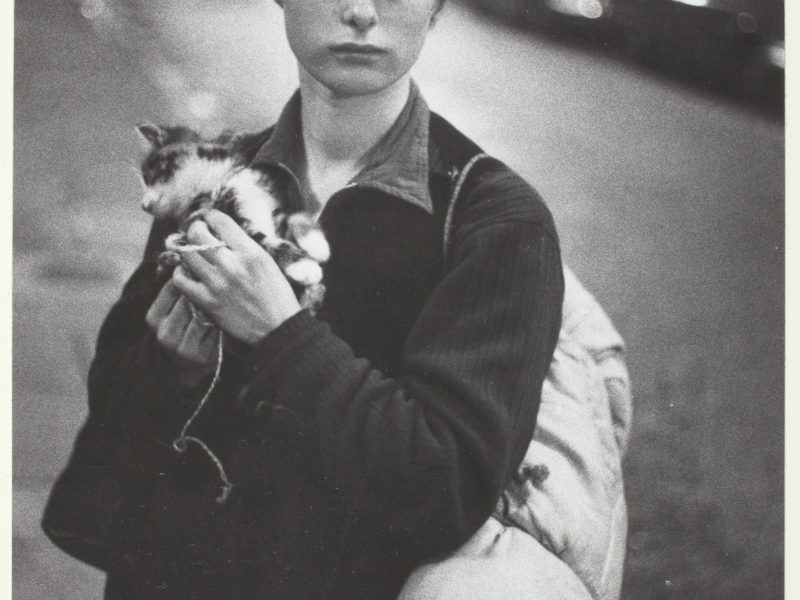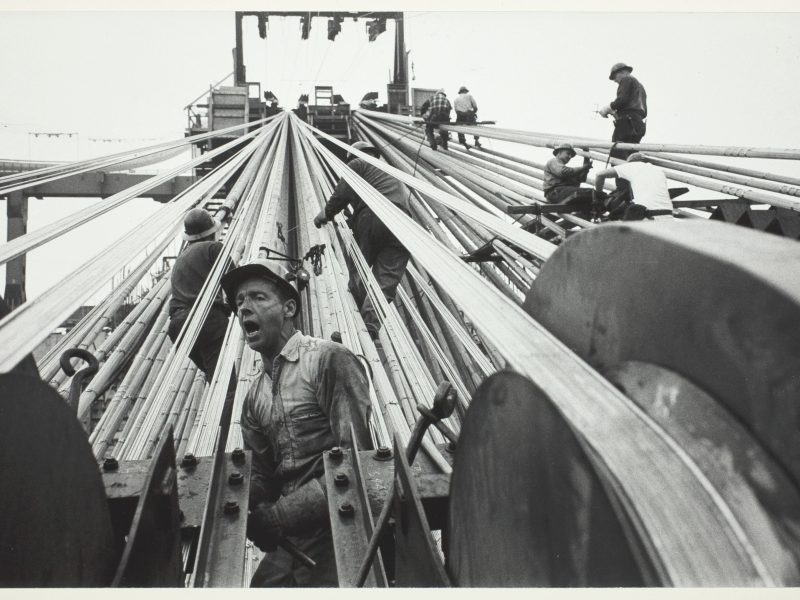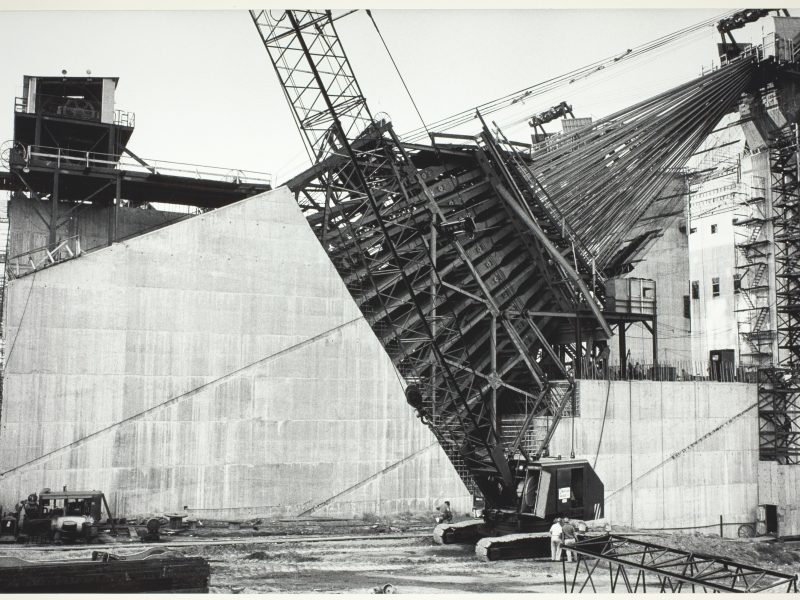Bruce Davidson
Bruce Davidson (American, born 1933) practices documentary photography from a distinctly humanist perspective. Born in Oak Park, Illinois, he began photographing at age ten upon receiving his first camera, a 127 Falcon. He studied photography under Ralph Hattersley at the Rochester Institute of Technology and continued his education at the Yale School of Architecture and Design, where a class project—photographing the football team—resulted in his first Life magazine photo essay, in 1955.[1] Three years later, after serving in the army and meeting the photographer Henri Cartier-Bresson, he became a member of the photographic cooperative Magnum. Davidson produced several significant series focusing on charismatic individuals and marginalized groups, including The Dwarf (1958), Brooklyn Gang (1959), England/Scotland (1960), and Freedom Riders (1961).[2] With the assistance of a Guggenheim Fellowship awarded in 1962, he continued to document the civil rights movement, photographing the March on Washington and the demonstrations in Birmingham and Selma, Alabama. This seminal body of work helped him win the first National Endowment for the Arts grant for photography, and he continued to shed light on the stories of different communities in East 100th Street (1966) and Subway (1980), among others.
Hugh Edwards first corresponded with Davidson in the early 1960s, and he gave the young photographer his second major solo exhibition in the winter of 1965. Edwards included photographs Davidson had taken of London, civil rights activists, and the building of the Verrazano-Narrows Bridge. In a draft of the exhibition’s wall text, Edwards wrote that Davidson was “distinguished by a quiet poetic quality which is his alone and is inimitable.”[3] Coinciding with the exhibition, the writer Gay Talese released his book The Bridge: The Building of the Verrazano-Narrows Bridge, which included some of the photographs on view of men creating this massive structure.[4] In a letter to Davidson in early 1965, Edwards wrote, “My copy of The Bridge is a real treasure now and thanks very much for that. I was deeply touched. I am very fond of the book just as it is—now it means even more and I shall guard it as much as anything I have.”[5] Over the course of Edwards’s tenure, the Art Institute acquired thirty Davidson photographs, including work from Brooklyn Gang, The Bridge, and England/Scotland, among others.
[1] Bruce Davidson, “A Dangerous Silence,” Life 39, 18 (Oct. 31, 1955), pp. 70–74.
[2] Brooklyn Gang was first published in Norman Mailer, “Brooklyn Minority Report,” Esquire, June 1960, pp. 129–37.
[3] Edwards, exh. label for Photographs by Bruce Davidson, 1965, on file in the Photography Department, Art Institute of Chicago.
[4] Gay Talese, The Bridge: The Building of the Verrazano-Narrows Bridge (Harper and Row, 1964).
[5] Edwards to Bruce Davidson, Jan. 27, 1965, Institutional Archives, Art Institute of Chicago.
